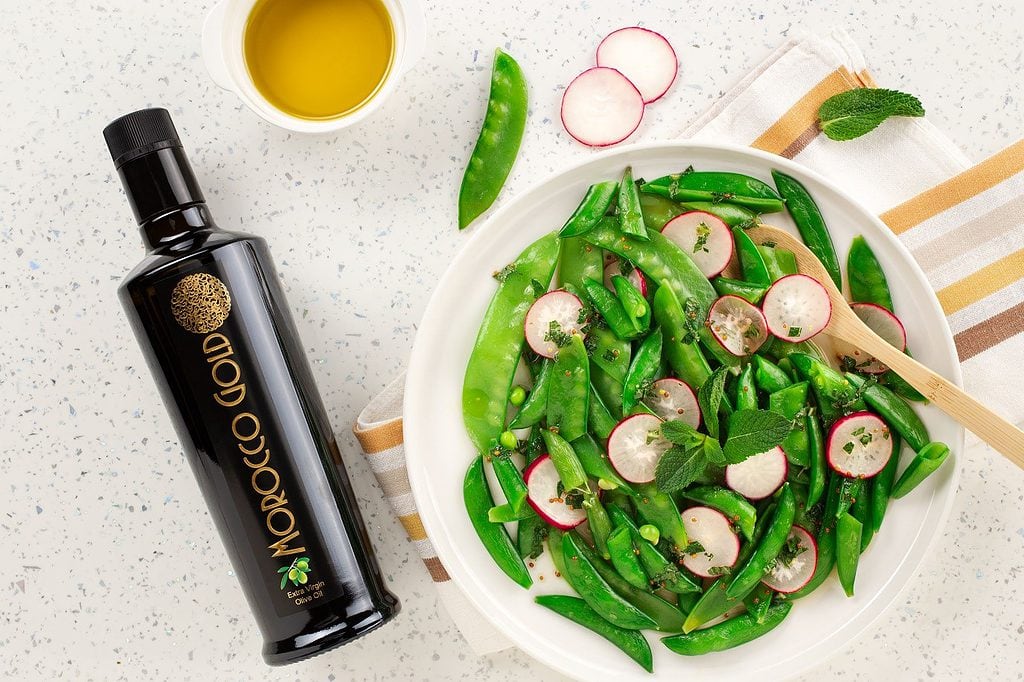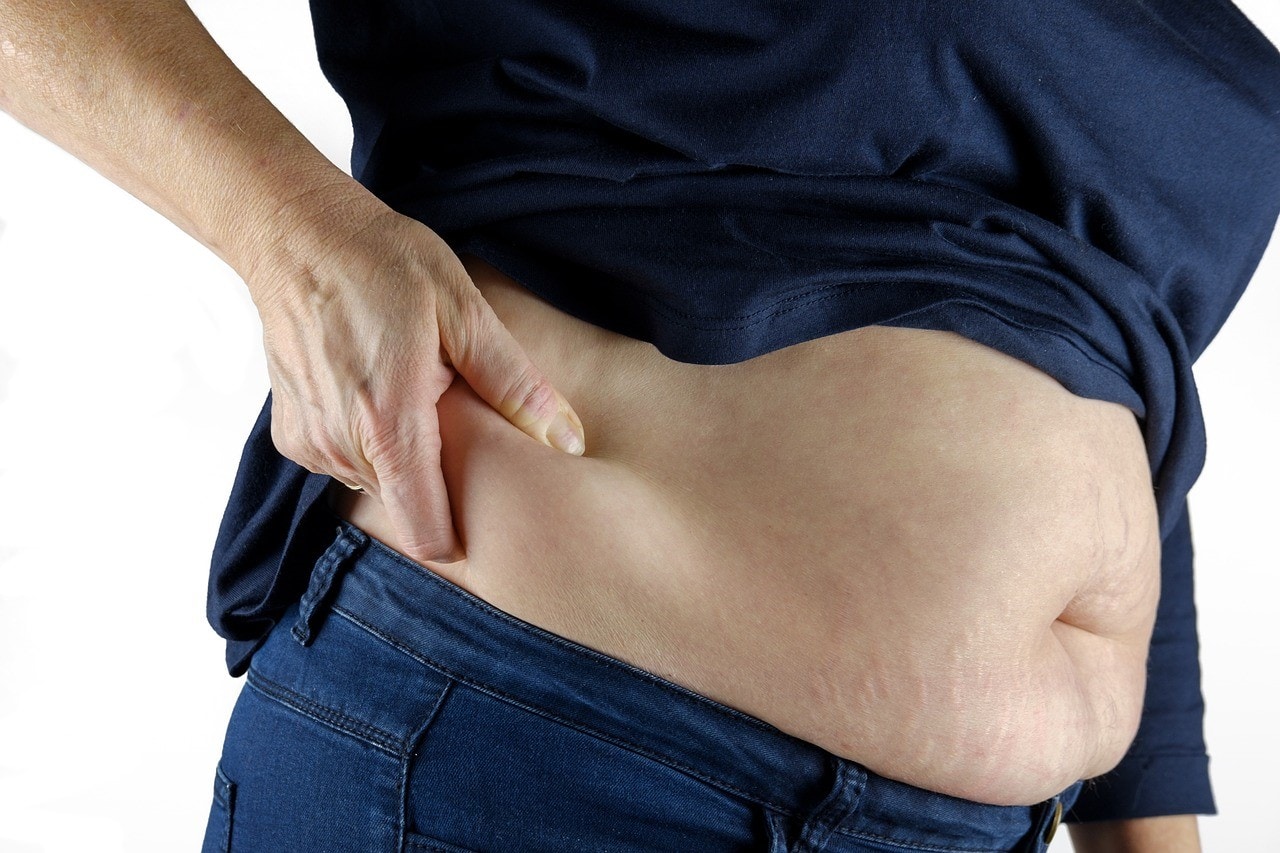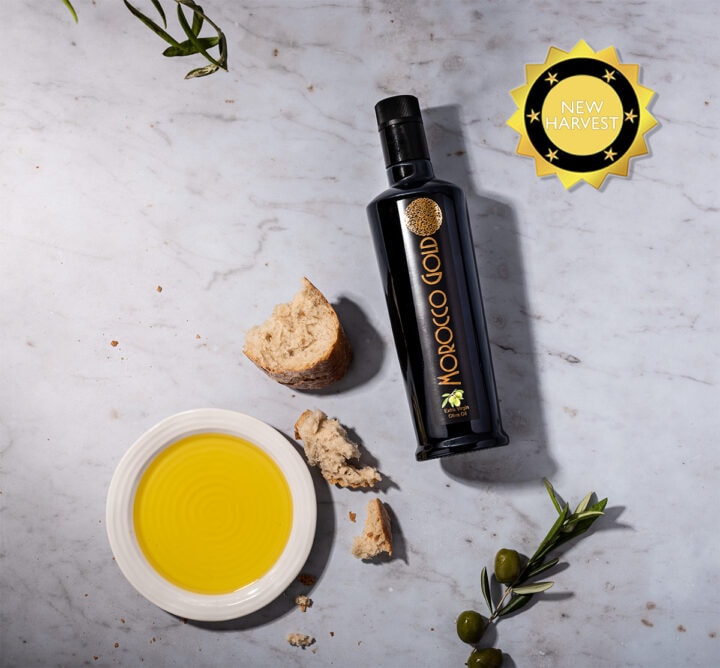Oleocanthal And Oleacein Can Combat Conditions Associated With Obesity And Prediabetes
Updated July 09th 2025
Key points at a glance
- Polyphenol-rich extra virgin olive oil (especially oleocanthal and oleacein) improved markers of oxidative stress and inflammation in people with obesity and prediabetes in the APRIL study.
- These benefits were not seen with non-virgin (refined) olive oil.
- Using high-quality extra virgin olive oil as part of a balanced Mediterranean-style diet may help support weight management and metabolic health.
Contents
- New Study Shows Biophenols Present In Extra Virgin Olive Oil Can Benefit Those With Obesity And Prediabetes
- Links Between Obesity And Inflammation And How Extra Virgin Olive Oil Can Help
- Why Choose Extra Virgin Olive Oil Instead Of Non-Virgin Olive Oil?
- Morocco Gold Extra Virgin Olive Oil Polyphenols
New Study Shows Biophenols Present In Extra Virgin Olive Oil Can Benefit Those With Obesity And Prediabetes
Consuming plenty of Extra Virgin Olive Oil, packed with the polyphenols Oleocanthal and Oleacein can improve health outcomes for people with obesity and prediabetes, a new study has shown.
In simple terms, a month of eating polyphenol-rich extra virgin olive oil helped the body cope better with oxidative stress than non-virgin olive oil.
Learn more about why Morocco Gold is a polyphenol-rich extra virgin olive oil.
According to the new study, published in Clinical Nutrition, consuming extra virgin olive oil rich in these biophenols for one month increased blood antioxidant defenses and decreased parameters associated with oxidative stress and inflammation, underlying conditions of both prediabetes and obesity.
According to a summary of the study reported in Olive Oil Times, these benefits were not observed after the consumption of non-virgin olive oil – a mixture of refined olive oil and some virgin olive oil – over the same period.
The research – known as the APRIL (Aove in PRedIabetes) study – saw 91 participants from Málaga, Spain, aged 40 to 65, with obesity and prediabetes divided into two groups.
One group of participants consumed the biophenol-rich extra virgin olive oil, and the other group consumed the non-virgin olive oil for 30 days. After a washout period of 15 days, each group received the other type of oil and consumed it for another 30 days. Both oils were consumed cooked and raw, but the exact amount of consumption was not measured.
Francisco-Javier Bermúdez-Silva, the study’s corresponding author and senior researcher at the Regional Hospital of Málaga, told Olive Oil Times.
“The main finding was the changes in oxidative stress. We found a better antioxidant profile and detected a decrease in some enzymes that are relevant for oxidative stress. Lipid peroxidation is a common feature of oxidative stress, and we found that these people had less oxidation of their lipids in the blood, this is in line with all the previous basic research that had been done with these polyphenols.”
Francisco-Javier Bermúdez-Silva, senior researcher at the Regional Hospital of Málaga
According to study researchers, three key compounds were identified as primarily responsible for reduced inflammation after consuming the extra virgin olive oil. As the study notes, extra virgin olive oil suggests “a higher capacity to modulate systemic inflammation when compared to olive oil.”
“Oleocanthal and oleacein could be mediating this latter effect because their anti-inflammatory actions are well-documented,” the researchers added.
Links Between Obesity And Inflammation And How Extra Virgin Olive Oil Can Help.
Obesity is a major health issue in today’s society and is strongly associated with chronic diseases and metabolic syndrome, including cardiovascular disease and diabetes mellitus. The excess fat tissue in obese individuals acts as a site of inflammation, releasing proinflammatory cytokines and disrupting the body’s natural processes.
Maintaining a healthy diet with healthy fats is essential for good health. Incorporating high-quality olive oil with anti-inflammatory properties into the Mediterranean diet is an effective way to promote human health and reduce the risk of inflammatory biomarkers.
Extra virgin olive oil isn’t a magic cure for obesity or prediabetes, but the anti-inflammatory and antioxidant effects of its polyphenols make it a smart foundation fat within a broader lifestyle plan that also includes balanced diet, movement and medical support where needed.
For a wider view of how extra virgin olive oil supports different areas of wellbeing, see our Health Benefits hub.
Bermúdez said there is a growing consensus that oxidative stress precedes the development of inflammation.
“This low-grade inflammation is related to insulin resistance, Insulin resistance is related to failing the beta cells to produce enough insulin, and this leads to hyperglycemia and later to a state in which the body cannot control glucose levels in the blood. The oxidative stress and inflammation are boosting all of these diseases, If you consume these compounds in extra virgin olive oil, we hypothesized that you can improve your condition and prevent the development of diabetes. To some extent, this is what we found.”
Francisco-Javier Bermúdez-Silva, senior researcher at the Regional Hospital of Málaga
However, Bermúdez acknowledged several limitations to the study that should be improved with further human studies, including the smaller-than-expected sample size and relatively short time frame, which prevented researchers from following the clinical evolution of the patients.
“If we could follow these patients for longer, I guess that we would find less diabetes, less obesity and better general health,” he said.
Why Choose Extra Virgin Olive Oil Instead Of Non-Virgin Olive Oil?

| Feature | Extra Virgin Olive Oil (EVOO) | Non-Virgin / Refined Olive Oil |
|---|---|---|
| Polyphenol Content | High (oleocanthal, oleacein, hydroxytyrosol) | Very low to none |
| Anti-inflammatory effects | Significant reduction in inflammation markers in APRIL study | No improvement observed |
| Oxidative stress | Improved antioxidant profile and reduced lipid peroxidation | No measurable benefit reported |
| Impact on weight-related markers | Supportive when used within a Mediterranean-style diet | No beneficial effect noted |
| Effect on glucose handling | Improved glucose control indicators in 30 days | No improvement |
| Study outcome | Positive results for people with obesity & prediabetes | No positive clinical effect |
| Best use | Ideal for health, cooking, prevention-focused diets | General cooking only |
Extra virgin olive oil has long been recognised for its medicinal properties and as a staple in the Mediterranean diet. Its benefits are numerous, and research supports olive oil consumption as part of primary prevention strategies for those at risk of obesity and metabolic syndrome.
What sets it apart from other olive oil is its higher phenolic content, superior phenolic composition, and health promoting properties.
- Higher polyphenol content: cold-pressed extra virgin retains natural compounds like oleocanthal and oleacein that are largely lost in refining.
- Minimal processing: extra virgin olive oil is produced mechanically, without high heat or chemical solvents.
- Richer flavour profile: the same phenolic compounds that support health also give high-quality oils their fruity, peppery, complex taste.
Discover more about polyphenols in extra virgin olive oil and how they work
These compounds reduce tumor necrosis factor alpha and c reactive protein, helping the body maintain a stable inflammatory status and support lipid metabolism.
International Olive Council standards ensure that cold-pressed extra virgin olive oil retains its nutritional value and unique anti-inflammatory profile.
However, the researchers added that they did not observe changes in insulin resistance, lipid profile, blood pressure or renal function.
“Taken together, these findings suggest that extra virgin olive oil was able to induce some clinical improvement in glucose handling, probably related with body weight decrease and amelioration of the inflammatory and oxidative status.
This was really a surprise for us. In one month, we didn’t expect to see a change in body weight or a change in glycemia, but these are very good indicators of good clinical results for these types of patients.”
Francisco-Javier Bermúdez-Silva
Bermúdez added that he is working on a new study to determine how oleocanthal and oleacein consumption may affect people with diabetes.
“We have a new project in mind in which we plan to perform a similar study, but on people with diabetes,” he concluded.
“Our study has shed some light on the prevention side of this compound. Now what we want to do is to perform a more therapeutic study by seeing what is happening in people who are already diabetic.”
Morocco Gold Extra Virgin Olive Oil Polyphenols
The polyphenol content of Morocco Gold extra virgin olive oil is exceptional, making it a standout, polyphenol-rich olive oil from Africa for weight loss. Three key factors contribute to this:
- The Picholine Marocaine variety, known for its potent fatty acid profile and high phenolic olive oils.
- The climate and terroir of Morocco.
- The early harvest of olives, which maintains a higher phenolic content.
The result is a high quality olive oil with beneficial effects on human health, including improving insulin sensitivity, supporting liver function, and reducing inflammatory biomarkers.
We are proud to say this year’s harvest produced our highest polyphenol levels yet, reinforcing Morocco Gold as a leading choice for primary prevention of cardiovascular disease, weight gain, and insulin sensitivity challenges.
If you’re looking for a naturally polyphenol-rich extra virgin olive oil to support a Mediterranean-style diet for weight management and blood sugar control, Morocco Gold is crafted with that goal in mind.
Learn more in our dedicated Polyphenols hub, or shop Morocco Gold Extra Virgin Olive Oil to add it to your daily routine.
Questions About Polyphenol-Rich Extra Virgin Olive Oil, Obesity and Prediabetes
Extra virgin olive oil on its own will not cure obesity or prediabetes, but studies suggest that polyphenol-rich oils can improve markers of oxidative stress and low-grade inflammation, which are closely linked to these conditions. When used as the main added fat within a balanced, calorie-appropriate Mediterranean-style diet, extra virgin olive oil can support weight management and better metabolic health as part of a wider lifestyle plan agreed with your healthcare professional.
Oleocanthal and oleacein are two naturally occurring polyphenols found in high-quality extra virgin olive oil. Research suggests they have strong antioxidant and anti-inflammatory properties, which may help reduce oxidative damage and support healthier blood vessels and metabolic function. The APRIL study highlighted that extra virgin olive oil rich in these compounds produced benefits that were not seen with non-virgin olive oil.
Yes, from a polyphenol point of view. Refined olive oils lose most of their natural phenolic compounds during processing, while extra virgin olive oil retains them. Because these polyphenols appear to play a role in modulating inflammation, oxidative stress and glucose handling, choosing extra virgin rather than refined olive oil is generally a better option for people who are managing risk factors such as obesity, prediabetes or metabolic syndrome—always alongside medical advice.
The APRIL study did not prescribe a fixed amount, and the ideal intake will depend on your overall calorie needs and treatment plan. Many Mediterranean-style diets that show health benefits typically include around one to three tablespoons of extra virgin olive oil per day, used in place of less healthy fats. It’s important to work with your doctor or dietitian to decide how much is appropriate for you.
You can do both. Recent research indicates that many of the key polyphenols in extra virgin olive oil remain present even after moderate-temperature cooking, such as sautéing. Using the oil for dressings, dips and finishing dishes as well as for gentle cooking is a practical way to enjoy the flavour while still benefiting from its antioxidant and anti-inflammatory properties.






